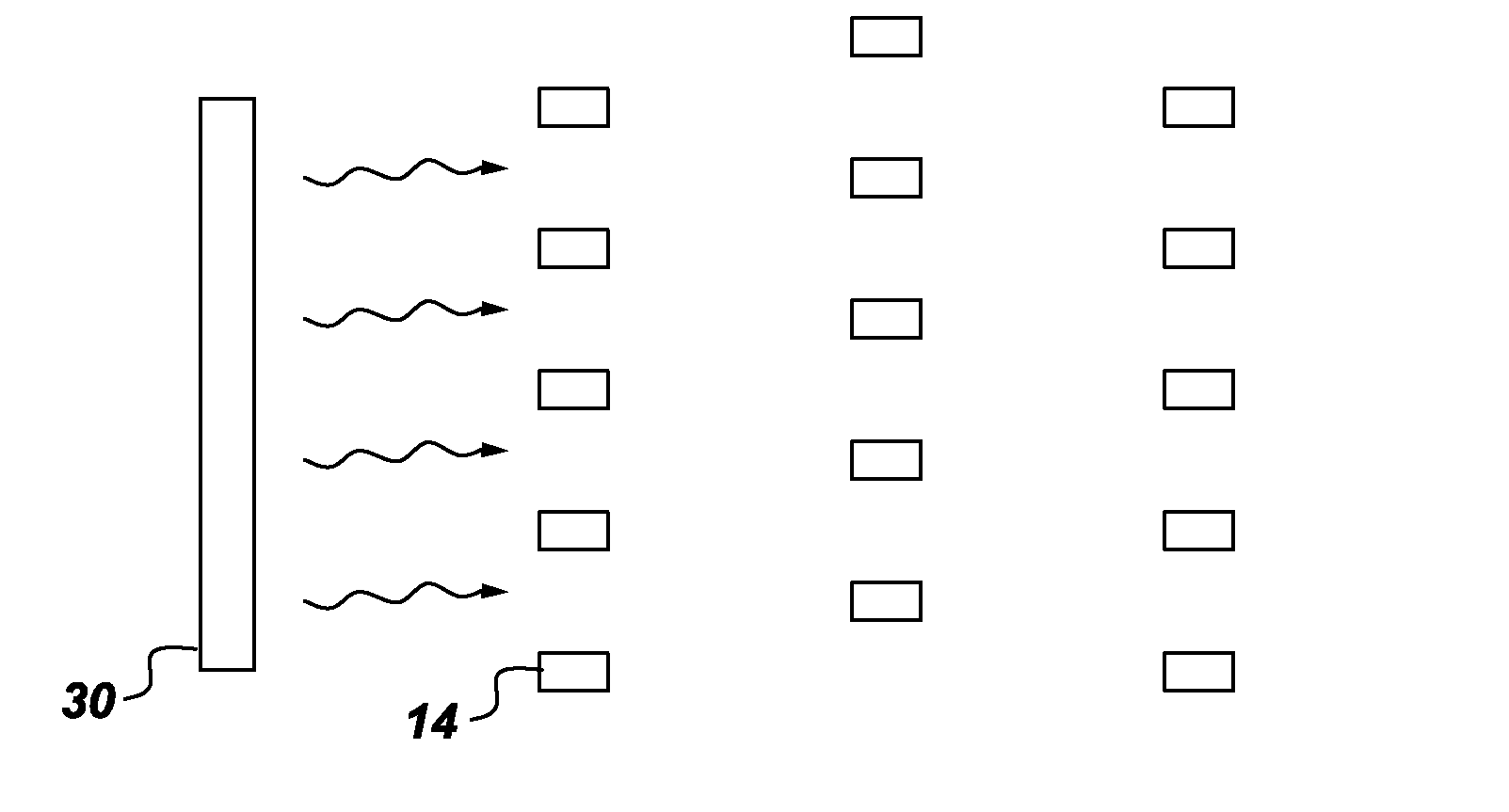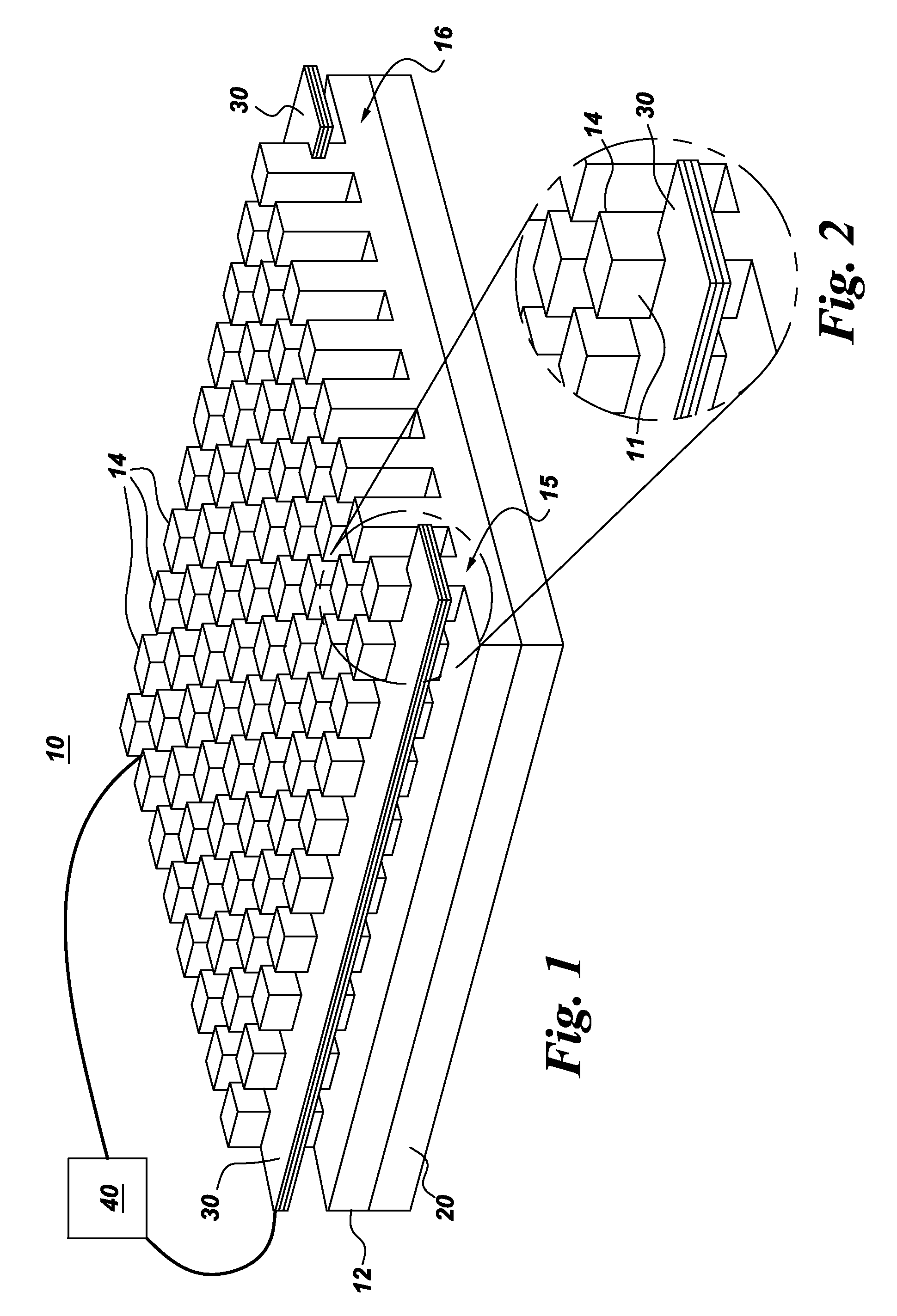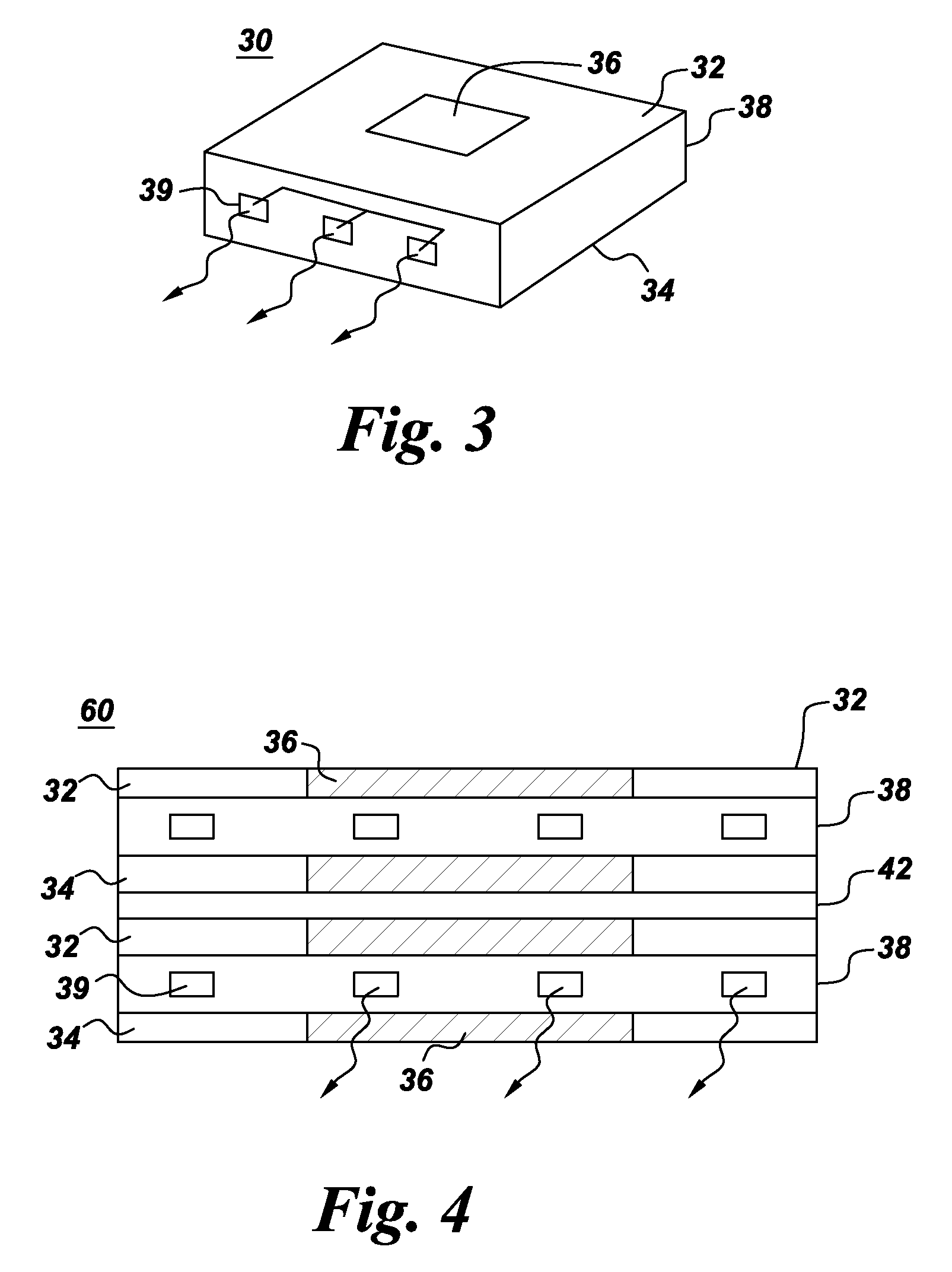Heat sinks with distributed and integrated jet cooling
a technology of integrated cooling and heat sink, which is applied in the direction of cooling/ventilation/heating modification, semiconductor device details, semiconductor devices, etc., can solve the problems of limited thermal management system heat removal capability, limited thermal management system space, and formidable challenge in thermal management system design to provide cooling for embedded electronics
- Summary
- Abstract
- Description
- Claims
- Application Information
AI Technical Summary
Benefits of technology
Problems solved by technology
Method used
Image
Examples
Embodiment Construction
[0025]FIGS. 1 and 2 illustrate a heat sink 10 with distributed jet cooling. As shown, for example, in FIG. 1, the heat sink comprises a base 12 for thermal connection to at least one heated object 20. The heated object 20 may be any object requiring cooling, non-limiting examples of which include high power processors and power electronics. The base 12 (base plate or sink plate) can be formed of a variety of thermally conductive materials, as known in the art. The heat sink 10 further includes an array of fins 14 thermally coupled to the base. The fins may be arranged in a two-dimensional array of “pin fins” as shown, for example in FIG. 1. For other arrangements, the fins 14 may take the form of a one-dimensional array of “plate fins” defining slots between them, as shown for example in FIGS. 7 and 8. Briefly, the heat from the heated object 20 is transferred into the base 12, which in turn transfers heat into the fins 14. The fins 14 increase the surface area for heat transfer for...
PUM
 Login to View More
Login to View More Abstract
Description
Claims
Application Information
 Login to View More
Login to View More - R&D
- Intellectual Property
- Life Sciences
- Materials
- Tech Scout
- Unparalleled Data Quality
- Higher Quality Content
- 60% Fewer Hallucinations
Browse by: Latest US Patents, China's latest patents, Technical Efficacy Thesaurus, Application Domain, Technology Topic, Popular Technical Reports.
© 2025 PatSnap. All rights reserved.Legal|Privacy policy|Modern Slavery Act Transparency Statement|Sitemap|About US| Contact US: help@patsnap.com



